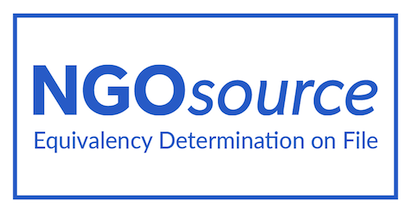An insight into the fieldwork practice at SNEHA
Apr 23 2025 / Posted in Health
As part of our Master’s in Social Work at Tata Institute of Social Sciences (TISS), we, Archana P
C and Swami Sonker had the opportunity to undertake fieldwork at SNEHA (Society for Nutrition, Education, and Health Action), a Mumbai-based NGO dedicated to improving public health in marginalised communities. The fieldwork provided invaluable hands-on experience in public health and community development. SNEHA focuses on improving maternal and child health, adolescent well-being, and mental health awareness in underserved communities. This blog provides fieldwork experience, challenges faced, and key learnings.
Understanding the Community Program Interventions
Our engagement with SNEHA’s programs introduced us to the diverse socio-economic communities in Mumbai’s informal settlements. The fieldwork involved working across different intervention areas, including the SAFAR (Sustainable Adolescent Friendly Systems to Build Agency and Resilience) program, which focuses on mental health awareness, anaemia and nutrition, stress management, emotional resilience, sex education, and reproductive health among school children.
Key activities included conducting school-based nutrition and anaemia awareness sessions, mobilizing communities for mental health sensitization, and assisting in data collection of baseline survey (SAFAR) and analysis for research-based interventions. Schools in areas like Shivaji Nagar and Dharavi provided crucial platforms for implementing these initiatives, though infrastructural limitations such as overcrowded classrooms and resource constraints posed significant challenges.
Innovative Approaches in Community Engagement
One of the most rewarding aspects of our work was employing creative methods to simplify complex health concepts. Some of the most impactful approaches included using Puppets and Visual Aids. These were instrumental in emotional resilience and mental health sessions, helping children express themselves more openly. Singing about nutrition and hygiene made health education fun and memorable for schoolchildren. Through role-playing and storytelling, encouraging children to narrate their experiences helped create relatable discussions about mental health and gender roles.
Data Collection and Analysis: Conducting surveys on anaemia, child rights, and adolescent reproductive health allowed us to understand community needs better and inform future interventions.









Challenges and Learnings from the Field
Working in marginalized communities comes with its own set of challenges. Mental Health Stigma is one of the significant issues. There was resistance from parents and school authorities towards counseling services due to the deeply ingrained societal stigma around mental health. Due to limited resources, many schools lacked proper sanitation, space, and educational materials, making interactive learning sessions challenging. Many awareness programs highlighted that sustainable behavioral change in children requires active participation from parents, yet securing their involvement was difficult. Between demanding jobs, household responsibilities, and the daily hustle, attending sessions often takes a backseat. Finding a standard time that works for all parents was nearly impossible, further complicating efforts to ensure their involvement.
Despite these challenges, we observed the power of participatory interventions in driving change. Group activities such as street plays, interactive games, and storytelling effectively engaged children and community members.
From Theory to Reality: Reflections on Professional Growth
Fieldwork at SNEHA provided technical knowledge and helped develop essential social work skills, including empathy, active listening, community mobilization, and adaptability. One of the biggest takeaways was learning the importance of working ‘with’ the community rather than ‘for’ them, ensuring that interventions are culturally sensitive and co-designed with community members for long-term impact.
It was challenging to adjust to a new city with its culture, social structures, and deep-rooted stigmas. The stark contrast between city areas, the bustling commercial hubs, and informal sectors was eye-opening. Community organizers played a crucial role in helping understand the complex social fabric, but the process wasn’t easy. It also made me realize how privileged I am. Through fieldwork, I became more aware of my insecurities and learned to be less bothered by minor inconveniences.
The most important thing is being Open to Learning. Every community has unique strengths and challenges. Observing and listening are as important as taking action. Field schedules often change, and embracing flexibility and adaptability is key to maximizing impact. Engagement with stakeholders, such as building trust with teachers, parents, and local leaders, will enhance program effectiveness.
Documenting our Work and Keeping detailed field notes helps in reflections and contributes to evidence-based interventions. Also, caring for our well-being is needed while working in challenging environments. It can be emotionally demanding, so ensure self-care and seek peer support when required.
Participating in follow-up sessions and sports events for children reinforced the need for sustained engagement rather than one-time interventions. The significance of systematic documentation and data-driven decision-making was another critical learning that emphasized the role of research in practical social work practice.
Conclusion
Our journey with SNEHA has been transformative, providing us with critical insights into grassroots social work and community engagement. Future interns can look forward to a rich learning experience that will challenge, inspire, and prepare them for impactful careers in social work. By approaching fieldwork with curiosity, commitment, and compassion, they can contribute meaningfully to SNEHA’s mission and make a tangible difference in the communities they serve.
Share:















